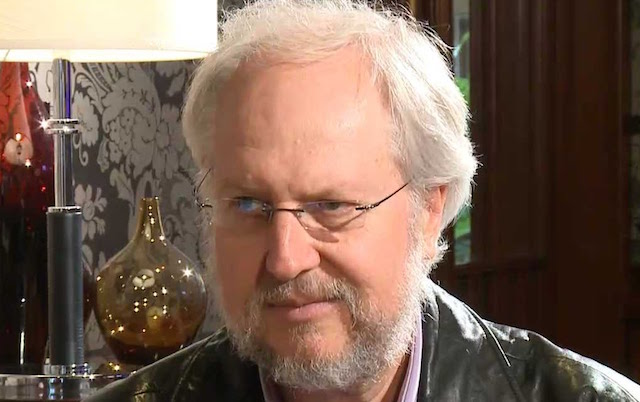This weekend the annual JavaScript conference Nodevember became the most recent participant in the political correctness (PC) wars when it un-invited keynote speaker Douglas Crockford, renowned for his involvement in advances to the modern web and the JavaScript programming language, from its upcoming November event. What it means for PR: The very organizations attempting to achieve good PR by being ultra sensitive to political correctness risk terrible PR when they take their PC efforts too far.

For example, a 2015 debate about campus sexual assault at Brown University led some women on campus to fear the dialogue would trigger civil rights warnings to a degree that at the University’s guidance, attendees “who might find the debate upsetting” were provided with “a safe space room” equipped with “cookies, coloring books, bubbles, Play-Doh, calming music, pillows, blankets and a video of frolicking puppies,” as reported by the New York Times.
A report by ListVerse noted that the National Union of Students Women’s Campaign, a feminist college student group in Britain announced in March 2015 they would ban clapping at their future conferences held at UK colleges, claiming that the act of clapping could “trigger some people’s anxiety,” and therefore should be banned from all conferences. Instead, feminist students instructed those who attend conferences to use “jazz hands”—silently waving their hands in the air—when they wished to display their approval.
Good intentions aside, these moves are extreme enough to open the risk of horrific PR. From appearances, Nodevember is experiencing this PR backlash today. By its policy and definition, Nodevember purports to be highly committed to “providing a harassment-free conference experience for everyone, regardless of gender, sexual orientation, disability, physical appearance, body size, race or religion.” The “short version” of the event’s code of ethics advises participants to “be kind to each other. Do not insult or put down other attendees. Behave professionally. Remember that harassment and sexist, racist or exclusionary jokes are not appropriate for Nodevember.”
This sentiment was fine and good until organizers decided this weekend, just eight hours after announcing the event’s four keynotes on Sept. 1, to publically uninvite the first keynote listed in an unceremonious Tweet: “We will also be removing Douglas Crockford from our keynote speakers list to help make the conference a comfortable environment for all.”
Say what? The alert hit a sour chord with hundreds of developers who’d looked forward to hearing Crockford’s presentation and were curious as to what could have occurred to justify the public shaming. The outrage has been rabid. A thread on Slack quickly erupted along with a Reddit thread that as of the time of this posting (6:30 PDT on Sept. 4) has produced 689 remarks.
In the aftermath, the conference published a statement today on Sept. 4 about the change. In it, Nodevember noted, “We are in over our heads…We aren’t professional organizers or PR people. We are still learning, and will make mistakes…We sincerely apologize for any distress caused to Mr. Crockford, and also to the community as a whole.” And they reversed their no refund policy for anyone offended by the change.
What happened? The organization has not disclosed details beyond the statement, which noted vaguely that “almost none” of the many things said about the decision “reflected the many facets” but acknowledged the un-invite Tweet “lacked nuance and could have been posed in a much better way.” In an attempt to trace the steps, blogger and programmer Paul Straw researched the chain of events, which appeared to have begun with a Tweet from @jsdnxx: “nice list of dude programmers, notice any omissions?” After a bit of back and forth about the issue of diversity among speakers and how to amend it, user Emily Rose piped in with “@nodevember, one way you could show you actually care about community safety & diversity is by uninviting Douglas Crockford. @nodevember he has repeatedly shown himself to be actively hostile to inclusivity and many will decline to speak if he is invited.”
No examples were named. Research of Crockford’s prior speeches, however, produced video of a 2013 presentation at Google GOOGL -0.64% titled “Monads and Gonads.” The presentation makes its points with the inclusion of what we could fairly refer to as “programmer humor.” It was a strained metaphor that was admittedly not very funny. In the course of the 39 minutes presentation it made humorous reference to the metaphor of testicles at least two and possibly three times (if you include the use of the term “gonads,” which in actuality could refer to male or female organs, but is decidedly not PC either way). In another presentation, findable through posts such as this Medium article on “Why I won’t present with Doug Crockford,” the author says Crockford “slut shamed” an audience by describing the “Old Web” that was beautiful because of its promiscuity, and then noting that some cases, such as financial transactions, are better served “by a committed relationship.”
Straw attempted to reach Crockford to obtain more detail about what had happened, from his point of view. Crockford’s cryptic response: “It is a mystery to me too.” It appears in this situation that everyone loses, on all fronts. Could PC and policy concerns have been better handled by speaking to the the party in question in advance to ensure crowd and event-appropriate sensitivity? I believe the answer is an obvious “yes”.
Before enacting ultra PC policies, organizations, companies and groups should ask themselves these hard questions: Do these actions reflect our honorable intentions? Or have our reactions swung so far we are risking the very things we want to avoid? (Offended participants and horrific PR.) In my opinion it is vital that organizers and organizations make a greater effort to think these issues through in advance, before public shamings or the creation of knee-jerk policy change. I welcome all opinions in the comment section below.
- Publish my comments...
- 0 Comments
